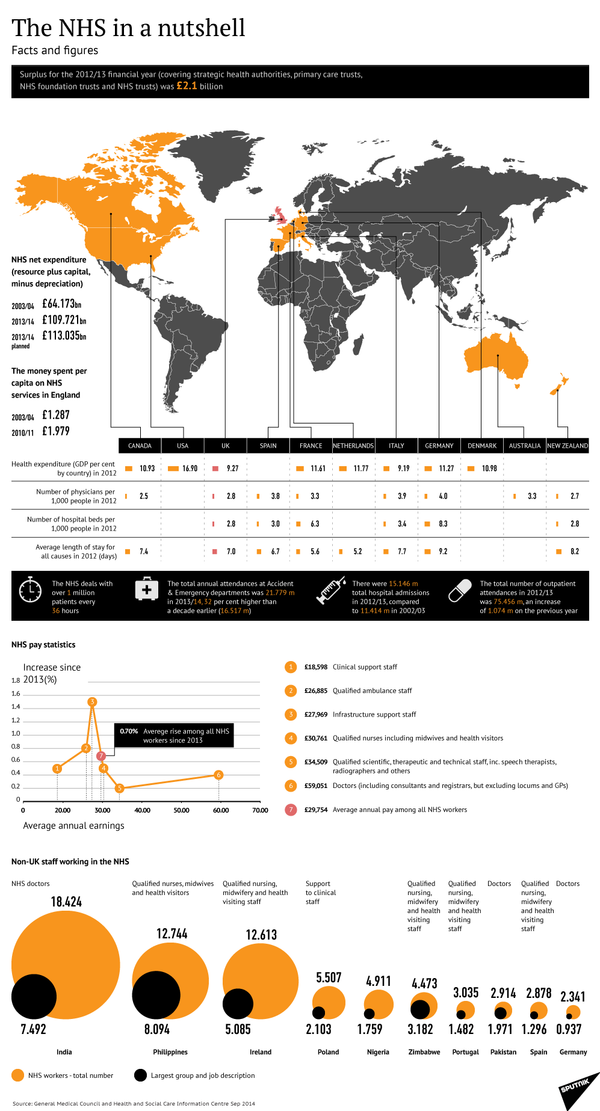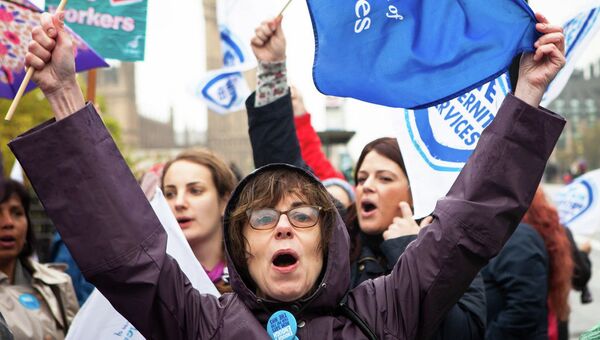There are special measures in place, by arrangement with unions, who have agreed to cover urgent and emergency care. In truth, the refusal to do unpaid overtime will probably have a bigger impact on patients than the four-hour strike. This is where we find out what the NHS would be like if staff didn't do unpaid extra work on a daily basis.
All of this was preventable. To get to the bottom of the dispute, we have to go back to the early days of the coalition, when then health secretary Andrew Lansley imposed a radical free market overhaul on the health service.
The reorganisation was not announced before the election. In fact, David Cameron had promised no further "top-down reorganisations" of the NHS. But once they were safely in power, the coalition set about implementing the most radical overhaul of the health service since it was created. Local decision-making bodies were stripped of their powers, which were handed to 'clinical commissioning groups' — new groups supposedly run by GPs. These doctors mostly handed the responsibility over to private firms, and indeed the system was constructed in such a way as to make this all but inevitable. Attempts to keep services delivered by public bodies were made nearly impossible by a bidding process constructed in favour of private companies.
It was a very expensive process, with the total bill coming in at £1.096 billion. Some £280 million of that went on closing parts of the service, while £300 million was spent on setting up new parts. The closure and reopening of offices cost £42 million, redundancies £453 million and new IT systems £54 million. Last year alone, over 10,000 jobs were lost as a result of the restructuring in England.
Meanwhile, NHS workers were being hit hard in their wallets. The real value of NHS pay has been falling for five years. Sixty per cent of NHS staff will not get a pay rise at all this year. Over a third of NHS staff, who are non-medical, are paid less than £21,000 a year.
It was possible that really quite severe pay restrictions would have been accepted by NHS staff if those NHS reforms had not taken place. The coalition could have made the argument that all public sector workers needed to accept belt-tightening measures if front-line jobs were to be protected in an age of austerity.
But the NHS reforms crippled two of the coalition's arguments for pay restraint. Firstly, they said higher salaries would cost front-line jobs. But jobs were already being taken by the NHS reforms. Secondly, they said that there wasn't enough money for staff to receive a pay rise. But they had just spent over a billion pounds on a reform programme no one asked for.
The Department of Health tried to split staff in two. A one per cent pay rise would be given to those already at the top of their pay grade while everyone else got nothing. This was against the advice of the independent pay review board, which had recommended a one per cent rise across the board. It's the first time the government has ignored its advice.
Staff on the NHS 'Agenda for Change' pay scale were refused a pay rise. These pay scales are divided into 12 bands, each with increments within it. The department claimed the journey up those bands represented pre-existing pay rises. That's incorrect. The top band represents the true value of the role. These increments were ways of keeping the salary bill down. They were manifestly not a reward. The refusal to give people on the pay bands the one per cent pay rise was a pay cut in real terms.
The argument was disingenuous and it angered NHS staff. They launched a four-hour strike on October 13th. They then initiated a 'work to rule' system until November 9th, where they refused to work any unpaid overtime.
The trick with pay bands crippled many staff members' trust in the department and they began to question the unpaid, and often unrecognised, work they put in to keep the NHS ticking over. The health service relies heavily on goodwill to get it through, be it staff working through lunch breaks or longer than contracted hours. But there is a growing sense that the government relies on this goodwill to help it keep costs down while opening up the NHS to well-remunerated private contractors.
The arguments about the need for pay restraint in the NHS are not unreasonable. Even with a ring-fenced budget, the health service will struggle to offer decent services to an ageing population without increased investment. But the government destroyed its negotiating position with an unnecessary and unhelpful free-market reorganisation. Now that it needs it, it has no goodwill to fall back on. The bond of trust has been broken. For the first time in a generation, NHS strikes could become a regular event.





